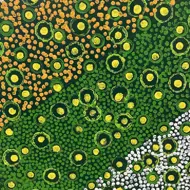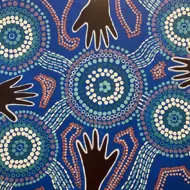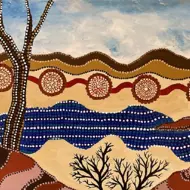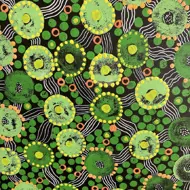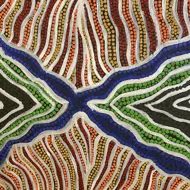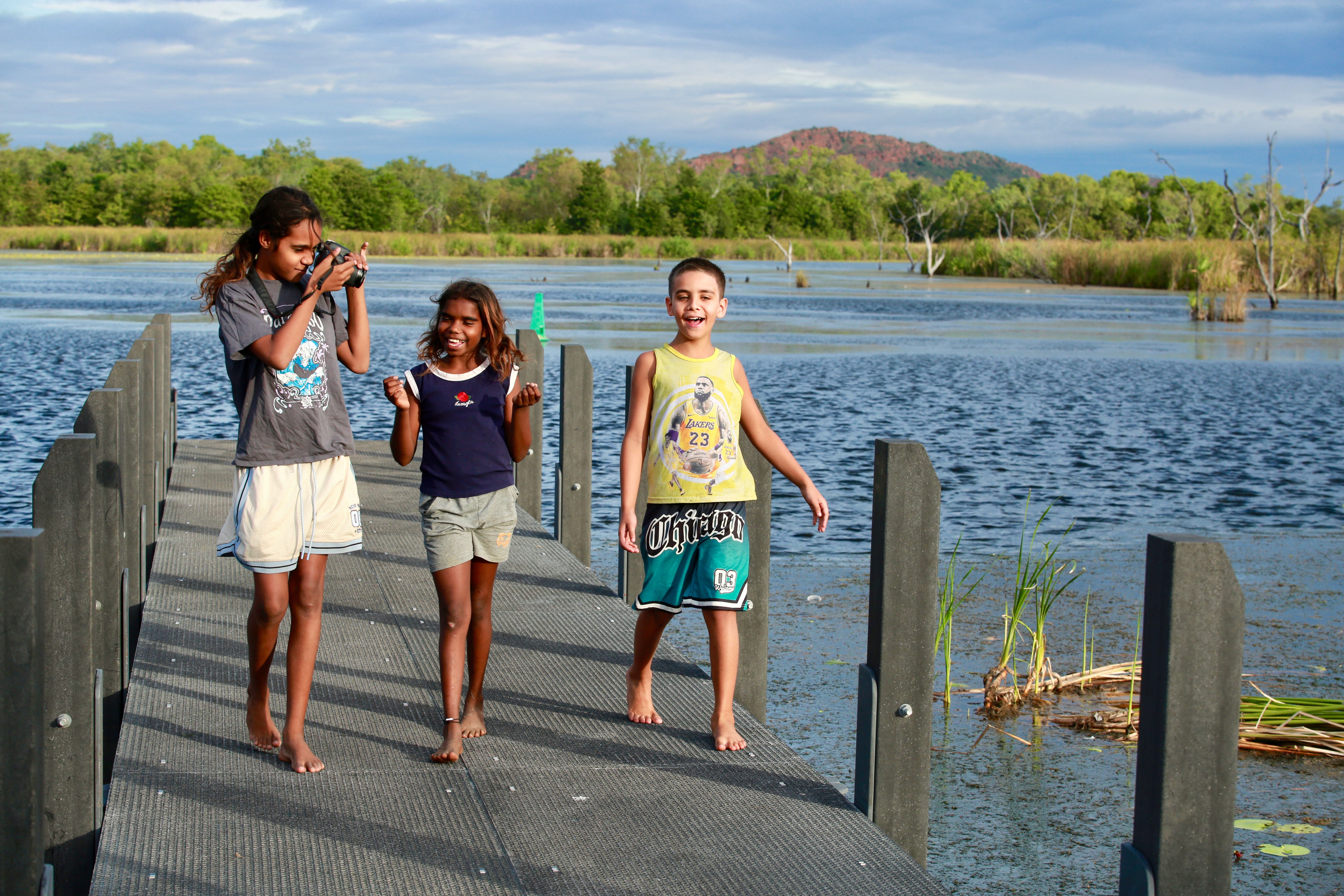Agency Performance - Build relationships and strategically influence key stakeholders to drive change for children and young people
Build relationships and strategically influence key stakeholders to drive change for children and young people
Fostering strong relationships with key stakeholders is essential to creating lasting, systemic change for children and young people. These partnerships enable us to share insights, amplify the voices of children, align efforts across sectors, and influence policies and practices that directly impact their lives. By building trust and collaboration, we can ensure that decisions affecting children are informed, coordinated, and focused on their rights, needs, and wellbeing.
The Commissioner and her team continue to build relationships across government, the non-government and community services sectors and the broader community to advocate on behalf of children and young people.
The Commissioner regularly meetings with:
• Other oversight organisations – Office of the Inspector of Custodial Services, Equal Opportunity Commission, Health and Disability Services Complaints Office, Mental Health Advocacy Service, Mental Health Tribunal.
• Ministers – Child Protection, Communities, Aboriginal Affairs, Attorney-General, Health, Mental Health, Education, Youth, Corrective Services, Police.
• Directors-General: Communities, Housing, Health, Mental Health, Education, Justice, Corrective Services, Police, Local Government.
• Peak organisations – including Principal Associations, WA Local Government Association, WA Council of School Support Organisations, WA Council of Social Service, Aboriginal Health Council of WA.
• Aboriginal Community Controlled Organisations, Noongar Family Safety and Wellbeing Council, Wunan Foundation, Nyamba Buru Yawuru, Yamatji Marlpa Aboriginal Corporation.
• Non-government organisations – Parkerville, Child and Family Alliance WA, Indigo Junction, Social Reinvestment WA, Committee for Perth, philanthropic organisations.
Other meetings took place throughout the year with key stakeholders such as Nicole Breeze, UNICEF Chief Advocate for Children, Satara Uthayakumaran, 2025 UN Youth Representative and Dr Giridharan Sivaraman, Australian Race Discrimination Commissioner.
Meetings focused on sharing voices of children and young people; providing evidence to support policy development; highlighting concerns raised by children and young people regarding access to services and supports, sharing outcomes of research and providing evidence for change.
Key Presentation and Speeches
The Commissioner continues to advocate for children and young people and educate the community on issues affecting them through a robust schedule of speaking engagements.
Some notable appearances in 2024-25 included:
• The Hatchery Women in Leadership Summit – keynote presenter for WA at a national conference held in multiple locations around Australia simultaneously, with former Prime Ministers from Australia and the United Kingdom, Julia Gillard and Teresa May, delivering keynote presentations via livestream.
• North Metropolitan School Psychology Service – keynote about the wellbeing of children and young people and how to best support them.
• Wanslea leadership team – keynote on child safe practices.
• National Suicide Prevention Conference – panel discussion about AI and eSafety for children and young people.
• Australian Institute of Family Studies webinar – how to centre children and best support Aboriginal and Torres Strait Islander families.
• Ngala Swan Communities for Children – presented recent findings from consultation with children and young people to inform the work they do.
• North West Metropolitan District Leadership Group – Commissioner’s priorities and how it impacts the north-west metropolitan region.
• Justice Reform Initiative – Reintegration Puzzle Conference – panel discussion and community conversation with fellow First Nations Commissioners, Guardians and Advocates about youth justice.
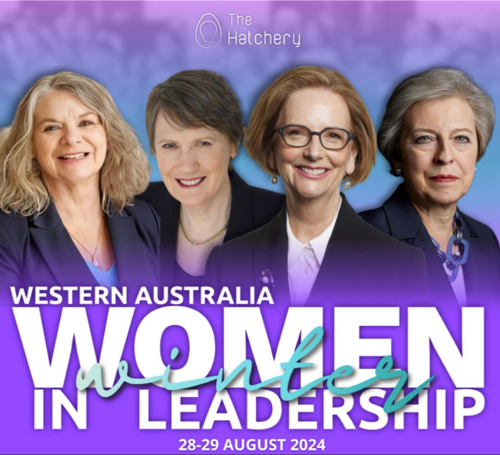
Improving outcomes for Aboriginal children and young people
Working with Aboriginal children is vital to ensuring their voices, cultures and experiences are respected and reflected in decisions that affect their lives. It means recognising the strength and diversity of Aboriginal communities, acknowledging the ongoing impacts of colonisation, and committing to culturally safe and inclusive approaches. By building genuine relationships, listening deeply, and valuing Aboriginal ways of knowing, being and doing, we can support stronger outcomes for Aboriginal children and contribute to healing, empowerment, and self determination. Their perspectives are essential to creating a fairer and more just future.
A large amount of the work from the Commissioner and her office can align with more than one of the five strategic pillars, which is particularly noted in her work with and on behalf of Aboriginal children and young people.
The Act requires the Commissioner to give priority to, and have a special regard for, the interests and needs of Aboriginal and Torres Strait Islander children and young people, and children and young people who are vulnerable or disadvantaged for any reason.
Some key projects focused on improving outcomes for Aboriginal children and young people are detailed below.
Yule River
The annual On-Country Bush Meeting at Yule River on Kariyarra Country is an initiative of Yamatji Marlpa Aboriginal Corporation’s (YMAC) Pilbara Regional Committee to support government accountability to First Nations people across the Pilbara. The 9th annual meeting was held in August 2024.
It provided an opportunity for community members to speak up and call on government to act on suggested solutions and drive change in the Pilbara.
The Commissioner reflected on the 2023 call to action and informed members about the Pilbara Listening Tour that took place as promised. She spoke about key issues facing children and young people, including, housing, justice, mental health, personal safety and poverty and how basic rights of the child are not being met across the region. The Commissioner highlighted the need for a child and family wellbeing strategy and shared decision-making.
Attendees were informed about the upcoming release of the Hear Me Out report which contains conversations with 43 children and young people at Banksia Hill Detention Centre.
The Commissioner told delegates she would continue to advocate on behalf of the community
for more programs, services and activities to meet the needs of the children and young people across the Pilbara and Mid West regions.
Click here to view Call To Action Roadmap.
Yamatji On-Country Bush Meeting
The Yamatji On-Country bush meeting provides an opportunity for the Commissioner to connect with community on Country and show her commitment and support.
Hosted by Yamatji Marlpa Aboriginal Corporation and Bundiyarra Aboriginal Community Corporation, the meeting is an important initiative that supports vital discussions between First Nations people from across the Mid West, Gascoyne and Murchison with Government representatives.
The 2024 Call to Action agreement identified action needed across Racism, Housing and Accommodation, Police and Justice, Employment, Training and Economic Development and Health and Wellbeing, which all align with the National Agreement on Closing the Gap.
The Commissioner outlined her support for the 2024 Call to Action and acknowledged the impact that racism has on a community and how it affects our young people. The Commissioner also highlighted that early intervention is key in supporting our community and raised the importance in focusing on supporting families, which in turn will help support our children and young people. The Commissioner advised community members on the 16 recommendations made to government in the Hear Me Out report regarding the incarceration of young people and the report was made available at the event. The Commissioner will continue to drive change and provide support across the regions.
In addition to the above priority projects, the Commissioner and her team continue to celebrate and acknowledge important events such as Reconciliation Week, NAIDOC Week and National Aboriginal and Torres Strait Islander Children’s Day by attending community events and schools, encouraging staff participation and education workshops and sharing knowledge and information about these important days and weeks of recognition with our stakeholders via social media and other digital channels.
More information about Agency Performance
Read the other pages in this chapter

